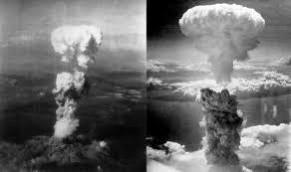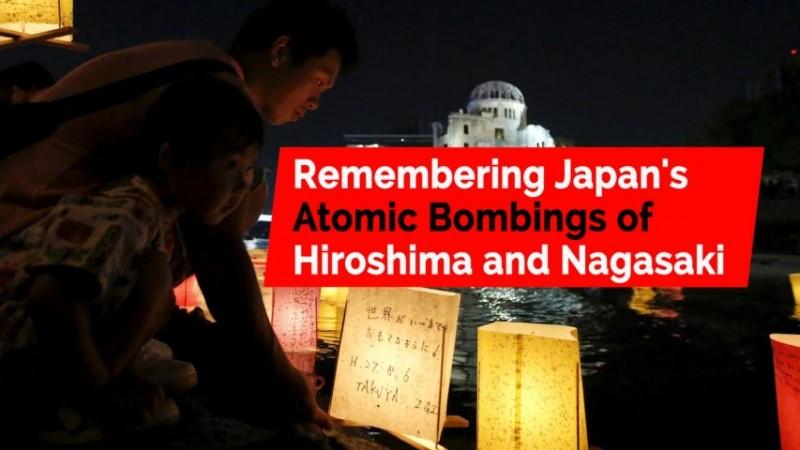
On a solemn Friday, Japan marked the 79th anniversary of the atomic bombing of Nagasaki, a western city of the country. The city mayor, Shiro Suzuki, called for the abolition of nuclear weapons during the annual event. The ceremony was held at the Nagasaki Peace Park, attended by approximately 2,300 participants, including representatives from around 100 countries.
At 11.02 a.m. local time, a moment of silence was observed. This was the exact time when a US B-29 bomber dropped a plutonium-core atomic bomb, nicknamed Fat Man, on August 9, 1945. The bombing resulted in the death of around 74,000 people in Nagasaki by the end of that year. The port city remains the last place in the world to have suffered an atomic bomb attack.
Mayor Suzuki, in his peace declaration, urged for dialogue and diplomatic efforts to explore a path toward peaceful solutions. He emphasized the importance of choosing peace over arms expansion or threats of force.Suzuki also demanded that the Japanese government sign and ratify a UN treaty banning nuclear weapons, and called for Japan to lead discussions to ease tensions and advance disarmament in Northeast Asia. The atomic bombing of Nagasaki followed the one dropped on Hiroshima on August 6. Both bombings were a means of accelerating the end of World War II and forcing Japan to surrender.

Japan had brutally invaded and occupied many parts of Asia before and during World War II, inflicting untold suffering and heavy casualties on millions of innocent victims. The ceremony was not without controversy. Western nations, including the U.S., Britain, Canada, France, Germany, Italy, and the European Union, were represented by ministers and consul generals, skipping the ceremony in response to Nagasaki not inviting Israel.
The mayor explained that Israel was not invited over fears that protests against the country's ongoing conflict in the Gaza Strip could affect the ceremony's solemnity, and the decision was not political.
The anniversary comes at a time of heightened global tensions. The Russian invasion of Ukraine and the expansion of armed conflicts in the Middle East have raised concerns about the increased likelihood of nuclear warfare. The U.N. undersecretary general and high representative for disarmament affairs, Izumi Nakamitsu, read out a statement by U.N. Secretary General Antonio Guterres, in which he wrote, Eliminating these weapons is our highest disarmament priority...And yet, I worry the lessons of nearly eight decades ago have not been learned.

The atomic bombings of Hiroshima and Nagasaki remain a stark reminder of the devastating power of nuclear weapons. The survivors of the bombings, known as hibakusha, continue to share their stories, hoping to prevent such a tragedy from happening again. The combined number of officially recognized survivors of the two nuclear attacks stood at 106,825 as of March this year, down by 6,824 from a year earlier, according to the Ministry of Health, Labor and Welfare. Their average age exceeded 85.
The anniversary also serves as a reminder of Japan's brutal history during World War II. The country had invaded and occupied many parts of Asia, inflicting untold suffering and heavy casualties on millions of innocent victims. The call for Japan to revisit its brutal history is a call for the country to acknowledge and learn from its past mistakes, to ensure that such atrocities are never repeated.
79th anniversary of the atomic bombing of Nagasaki is a solemn reminder of the devastating power of nuclear weapons and the importance of pursuing peace and disarmament. It is a call for dialogue and diplomatic efforts to resolve conflicts and tensions, and a call for the abolition of nuclear weapons. It is also a call for Japan to revisit its brutal history and learn from its past mistakes. The survivors of the bombings, the hibakusha, continue to share their stories, hoping to prevent such a tragedy from happening again. Their stories serve as a stark reminder of the horrors of war and the importance of peace.

















